Why Did They Never Continue Half Life
Why We Never Got To Play Half-Life 3
Before we get into the details of Half-Life 2: Episode Three—and why we'll likely never play it—we need to first take a look at the backstory of what happened in Episode Two. So, fair warning: spoilers ahead regarding the entire Half-Life series (although if you haven't played it, you probably shouldn't be reading an article about Half-Life 3 anyway). Go download and play The Orange Box release, then come back. We'll still be here.
The hype is too big to contain
Since the original announcement of Episode Three more than ten years ago, Valve has released several blockbuster hit games, including Portal and Portal 2, Team Fortress 2 and Left 4 Dead. But despite the success of these titles, Half-Life 3 was never rolled out to the masses, instead earning the top slot among the most famous pieces of vaporware. What was originally touted as the last "in a trilogy...that will conclude by Christmas of 2007" has become nothing more than whispers in the dark.
As time went on, the company line on Episode Three from creator Gabe Newell evolved from firm commitment to vague mentions to complete refusals to comment whatsoever. If you'd like to see this evolution yourself, you can watch a chronological supercut of Newell interviews that fans put together to celebrate the ten-year anniversary of the original announcement. Of course, as Newell's comments about the franchise grew smaller, fan hype over the series has grown ever larger. With the success of the other aforementioned Valve games, fan expectations have grown incredibly high—so high that Newell and Valve may be afraid any Half-Life title they release may never live up. After all, just look at what happened to Bioware with Mass Effect 3.
Update 1/18/17: During a Reddit AMA, Gabe Newell again gave nothing but the vaguest of answers regarding Half-Life, explaining that "it's hard for me to look at [the Half-Life games] as anything other than a series of things I regret." That being said, Newell did give fans a tiny glimmer of hope when he said there was a chance of new content and games being developed in the Half-Life/Portal universe, as well as new single-player titles coming from Valve. Additionally, the rumored Half-Life movies are apparently still in the development pipeline.
The main writer/developer retired
Early in 2016, Marc Laidlaw—the main writer and creative voice behind the entire Half-Life series—retired from Valve after 18 years with the company. An intrepid fan emailed Laidlaw about his retirement, to which he replied with a few comments about his departure. Laidlaw explained that he left for "many reasons, most of them personal. An outwardly obvious reason is that I'm old, or anyway oldish." When asked what his departure from Valve meant for the completion of Half-Life 3, Laidlaw answered, "I don't and can't entirely know. Half-Life is fully owned by Valve. It came into existence before my arrival. Where Valve may choose to take it in the future is not in my hands."
It's hard not to assume that Laidlaw would never have left Valve if he was actively writing the story for Half-Life 3. Laidlaw was in love with the lore of the series—so much so that he was actually writing Dr. Breen Half-Life fanfiction about it for a couple of years on a special @BreenGrub Twitter account. It turns out that it might not all have been fanfiction, however, as the "Breen Grub" actually figures into what happened next.
...and then published the HL3 plot on his website
Over a year after leaving Valve, Marc Laidlaw published what appears to be the whole plot to Half-Life 3 on his personal website. On August 25, 2017, Half-Life fans everywhere celebrated and mourned after reading what will likely be the only thing resembling an actual conclusion to the series. If you read the version on Laidlaw's blog, you might be confused by all the unfamiliar names—like "Jerry Maas," "Alex Vaunt," or "Gertrude Fremont"—which were likely changed by the writer in order to avoid any legal entanglements with Valve.
However, it's clearly the tale of Episode 3, so one savvy fan took the blog entry and reposted it on GitHub with all the names corrected for easier reading. Although it's not a real substitute for a fully fleshed-out Half-Life 2: Episode 3, Laidlaw's 2041-word entry manages to provide at least a modicum of closure for the legions of fans who have been waiting patiently for nearly a decade.
The final episode
Following the death of Eli Vance, Gordon and Alyx head to the Arctic in search of the Borealis research vessel that Dr. Judith Mossman told them about. Their helicopter is shot down, and they continue the rest of the way on foot. They find a large Combine installation surrounding an empty area of ice—at least, it seems empty at first. They soon realize that the Borealis is rapidly phasing in and out of existence at the center of the field, and the Combine's installation has been placed around it in order to capture the ship should it fully materialize.
At that point, they're captured by Dr. Breen. Breen's consciousness is now trapped inside a disgusting, slug-like creature—remember that "BreenGrub" Twitter account? Freeman complies when Breen begs them to kill him, and they resume their mission. They free the imprisoned Dr. Judith Mossman, who helps them bring the Borealis into a brief window of coherence, which the trio uses to board the vessel. Once inside, they're flung and stretched between time and space, and things start to get weird. One of the universes they observe appears to be a Combine hub preparing for a vast invasion.
Mossman and Alyx argue over whether to preserve the ship or destroy it, as Alyx's father Eli wanted. Eventually Alyx wins the fight by killing Mossman, and they prepare a kamikaze run to destroy the Borealis within the Combine's invasion staging area. At the point of no return, the shadowy G-Man arrives, whisking Alyx away and leaving Freeman behind. Upon glimpsing the Combine universe, Freeman realizes that their attack would be less than a flea's bite to the Combine. Luckily, the Vortigaunts open their own portal through space and time, pulling Gordon to safety before the ship explodes.
It's a metaphor
In addition to providing the final chapter of Gordon Freeman's story, Marc Laidlaw's tale can easily be interpreted as an allusion to his real-life relationship with Valve. It's no secret that the character of Gordon strongly resembles Laidlaw himself. The letter reveals much when you read between the lines: "This was the case until eighteen months ago, when I experienced a critical change in my circumstances, and was redeposited on these shores." Translation: it's been approximately 18 months since Laidlaw left Valve, and he now feels comfortable talking about HL3 (or perhaps an NDA recently expired).
He continues in this vein in the final paragraph: "At this point, the resistance will have failed or succeeded, no thanks to me. Old friends have been silenced, or fallen by the wayside. I no longer know or recognize most members of the research team, though I believe the spirit of rebellion still persists. I expect you know better than I the appropriate course of action, and I leave you to it. Expect no further correspondence from me regarding these matters; this is my final episode." Translation: Much of the original Half-Life team is no longer at Valve. The game will get made, or it won't—but Laidlaw will not be involved. As to the player's "appropriate course of action," with open access to the Source Engine and the basic plot of the game already written, a dedicated team of fan developers could probably make Half-Life 2: Episode 3 themselves.
Valve's workflow is not conducive to finishing a game
According to an anonymous Valve employee who spoke with Game Informer, the dynamic way that employees choose projects contributed to Half-Life 3 never getting off the ground. Developers, artists, story writers, and other team members can literally take their desk and move it to whatever project interests them the most. This means internal politics can really make or break a game.
The anonymous source estimates that various iterations of Half-Life 3 have been in development as early as 2005. "I've heard that some teams have had two to three people working on it, and they eventually ran into a wall, and some teams may have gotten up to 30 or 40 people before it was scrapped," they said. "Some people—I don't want to name names—were excited about their projects. They've had some different thoughts about what it should be. Every time a Half-Life project gets some gravity and then collapses, it becomes harder for the next one to start up."
There's one major problem with this type of development cycle: if the team members lose interest or hit a roadblock, that's likely to be the end of the project, as there's no higher driving force in the company greenlighting ideas, keeping the projects on a timeline, and allocating assets. Valve's attitude seems to be that is a project falls apart, then it wasn't meant to be—and the anonymous source seems to think that hands-off approach spells doom for the future of the Half-Life franchise. "The idea of delivering a third episode of Half-Life 2, that's dead. There's no universe where that will happen," they concluded. Well, thanks for killing our dreams, dude.
Valve is no longer a video game developer
Valve isn't seriously in the business of making video games anymore, and they haven't been for some time. With the exception of The Lab—a set of free mini-games that shipped in 2016 with the HTC Vive—Valve hasn't actually created a title since Dota 2, back in 2013. It's worth noting that many of Valve's franchises, including Left 4 Dead and Portal, started out in the hands of other companies—companies which Valve then acquired. Similarly, Dota 2, Day of Defeat, Team Fortress and Counterstrike all started as mods—mods which Valve then acquired.
Do you notice a pattern here? Valve's only game franchise that they conceptualized and developed from the very beginning was the Half-Life saga, which launched the company into the big leagues. Since then, they've moved on to more profitable ventures. It obviously isn't out of the question that they'll continue to release sequels for some of their games, and they obviously continue to have developers, writers, and designers on their staff for a reason, but it seems likely that's for DLC, updates, in-game items, the Source 2 engine, the Vive, etc.
How much are they making with Steam?
While Valve doesn't publicly release financial data, in 2011, a Forbes article estimated that Valve/Steam controlled around 50%-70% of the downloadable PC game market. A current market report puts the value of the 2016 PC/MMO game market at nearly $26 billion. If Steam still controls even 50% of that market, that means that online sales of titles distributed on Steam could generate about $13 billion in revenue this year. That same Forbes article also claimed that Steam gives game developers 70% of the gross margin, keeping 30% (plus distribution costs) to themselves. That means Steam is possibly raking in at least $3.9 billion per year distributing games they didn't spend a dime to develop. Why spend time and money developing a game that couldn't bring you even a fraction of that yearly income?
What could be more profitable than Half-Life 3?
As of 2011, Half-Life 2 had sold over 12 million copies. A 2008 estimate put total sales for the entire franchise (including The Orange Box) at around 32.8 million copies. Eight years later, it's hard to say what the exact total sales might be, but let's go with an estimate of 40 million copies. Even if all 40 million of those copies were purchased at the launch price of $49.95—which they weren't; currently The Orange Box costs $19.95 on the Steam store—that would come out to be about $2 billion.
That seems like a huge wad of money, and it is—but when you consider the 12 years of production that went into the Half-Life games, that's only about $166 million per year over that time period. Subtract development costs, salaries, overhead, and when you also take a look at Valve's failed Steam Machine—which was years in the making—suddenly you start to understand why Newell has focused on the online Steam platform, acquiring other profitable intellectual properties to develop, multiplayer gaming, micro-transactions, and community-based development, instead of developing their own original products.
The most important character died
Okay, at this point, some of you are yelling at your screen, "Gordon is still alive, you fool!" But Eli Vance—not Gordon Freeman—was actually the most important character of the Half-Life saga.
In the original Half-Life 2, your first objective is to go meet Eli Vance—who was apparently Gordon's former colleague and is now the frickin' leader of the entire Resistance—at the Black Mesa East base. After that, the base is attacked and Eli is kidnapped, which makes your next objective obvious—link back up with the Resistance and rescue Eli from the Nova Prospekt prison. And wouldn't you know it, just as you infiltrate Nova Prospekt and reach Vance, double-agent Judith Mossman kidnaps him again and absconds with him through a portal to City 17's Citadel. You then spend the rest of the game trying to rescue Eli Vance again—this time from the Citadel. You're eventually successful, but before Eli can explain anything to you, the game freezes and Gordon is placed into stasis.
No really, Eli is the most important character
Half-Life 2: Episode One picks up the story, and when you come out of stasis and are reunited with Alyx Vance, your first goal is to re-enter the Citadel and somehow slow down the core's meltdown long enough for Eli and other Resistance allies to escape City 17. After that, you have to escape the city yourself with Alyx aboard a train, and the game ends as the core explosion derails the train you are on.
Finally, in Episode Two, you spend the first third of the game saving Eli's daughter, Alyx. The next third is a gigantic escort quest to reunite Alyx with Eli. The final third revolves around defending Eli and the base from multiple attacks. At one point, Eli begins to reveal a huge secret about the Black Mesa incident (from the original Half-Life game) to Gordon, but cuts off—promising to finish the discussion after the superportal is closed. Then he DIES, leaving us in the dark. That's right, Eli Vance—the primary objective of most of Half-Life 2, the MacGuffin of the entire saga—is now dead. And unless Valve and Gabe Newell can come up with a creative way to replace their dead MacGuffin, that means the series is probably dead along with it.
So, there will never be a Half-Life 3?
Well, never say "never," but it certainly looks unlikely. When it comes down to it, at this point producing Half-Life 3 just isn't profitable enough for Valve to spend the time to do it. On top of the billions from distributing other developer's games via Steam, Valve is also making cash hand-over-fist via transaction fees, in-game items, surcharges and other distribution deals with their Steam Market, subscription plans, non-gaming software, Steam Music, hardware, and even movies.
In Gabe Newell's own words: "The only reason we'd go back and do a super-classic kind of product is if a whole bunch of people internally at Valve said that they wanted to do it and had a reasonable explanation for why [they did], but if you wanna do another Half-Life game, [...] that seems like a bad choice, so we'll keep moving forward, but that doesn't necessarily always mean what people are worried that it might mean."
That being said, with the Source Engine available for game developers to use and Laidlaw's story serving as a basic template, some savvy game developers might decide to do the impossible themselves and bring us a fan-made version of Half-Life 3—even if it couldn't go by that name or use the same characters.
So there you have it—all the reasons we never saw Half-Life 3, and why we likely never will. Of course, this could all change in an instant. Gaben could descend from on high tomorrow and break the internet by tweeting "#hl3c." Maybe this article contains super-secret HL3 numerology and will prompt tons of DMs on Twitter asking for confirmation. TL;DR: the world may never know.
Source: https://www.looper.com/29100/never-got-play-half-life-3/
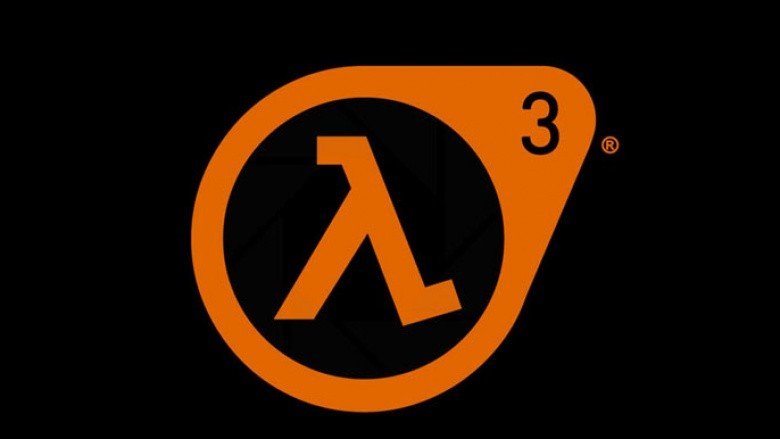
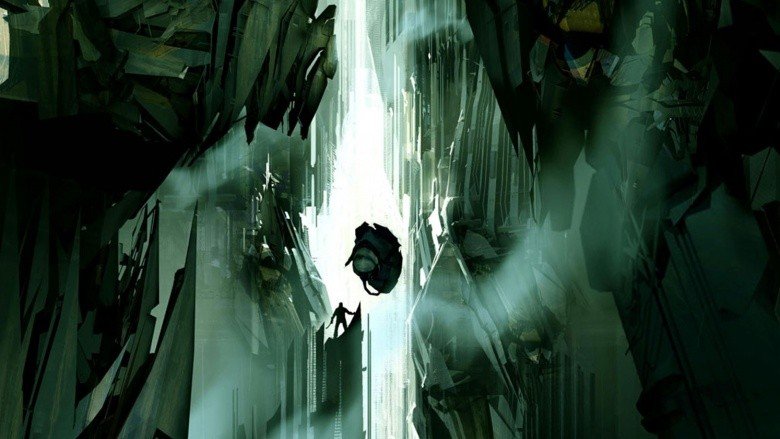
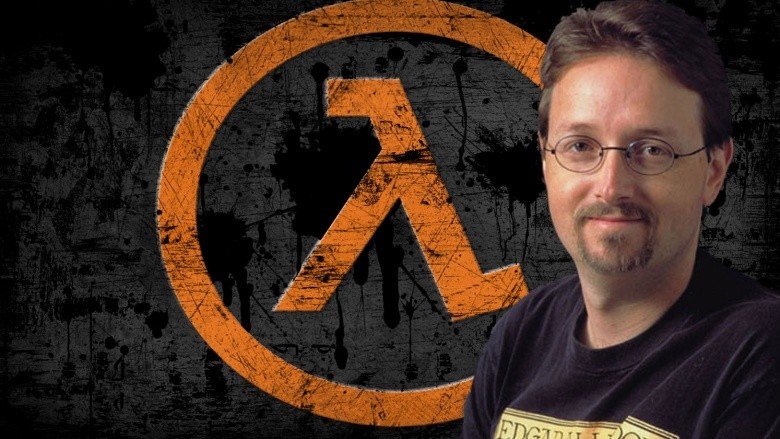
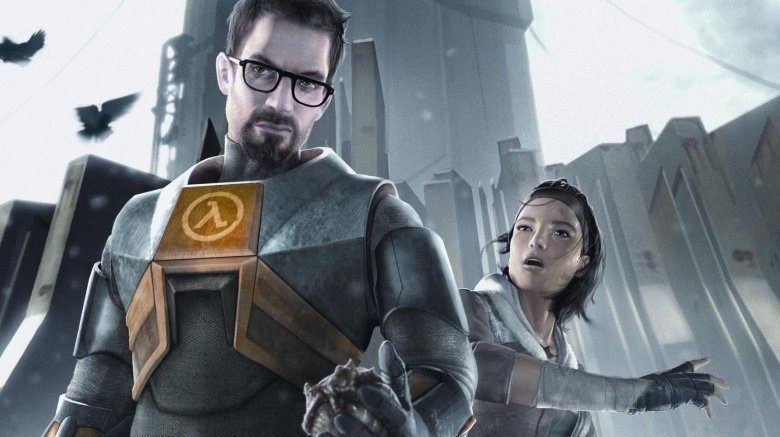
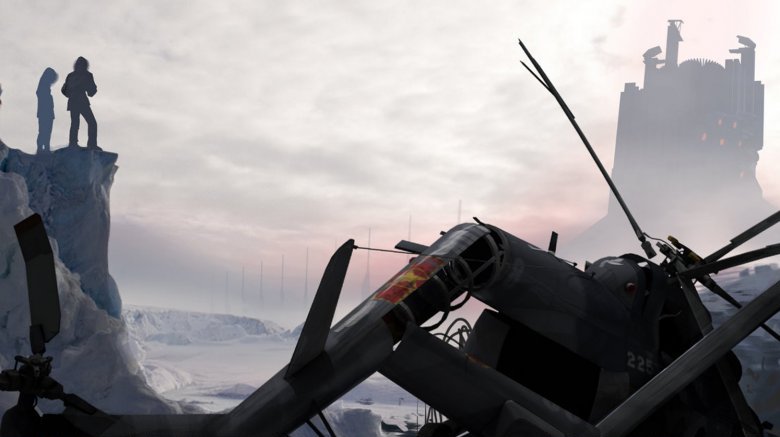
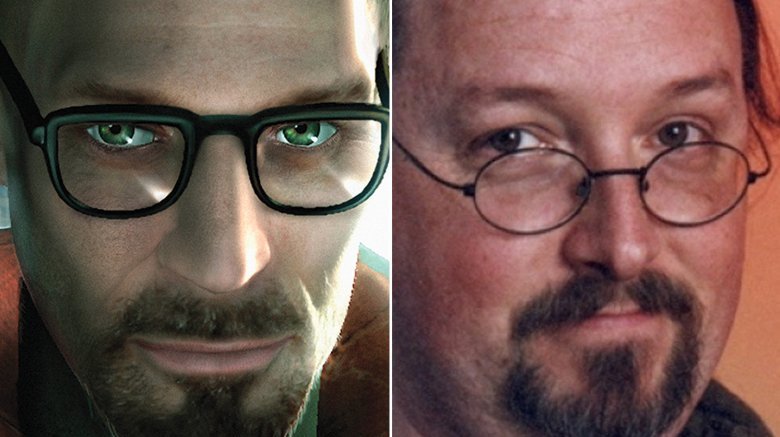
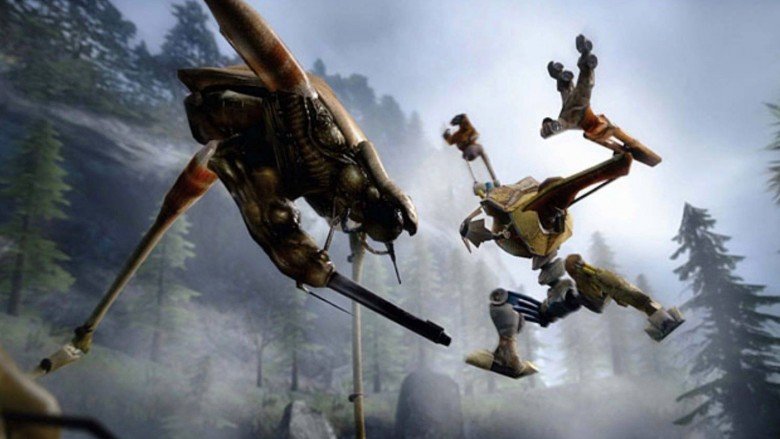

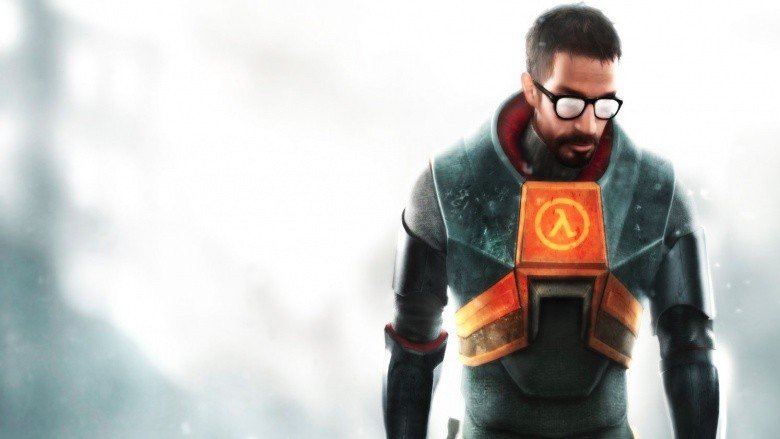
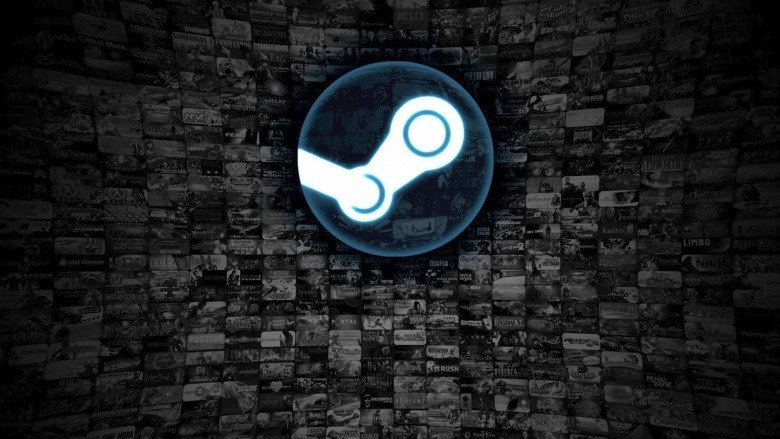
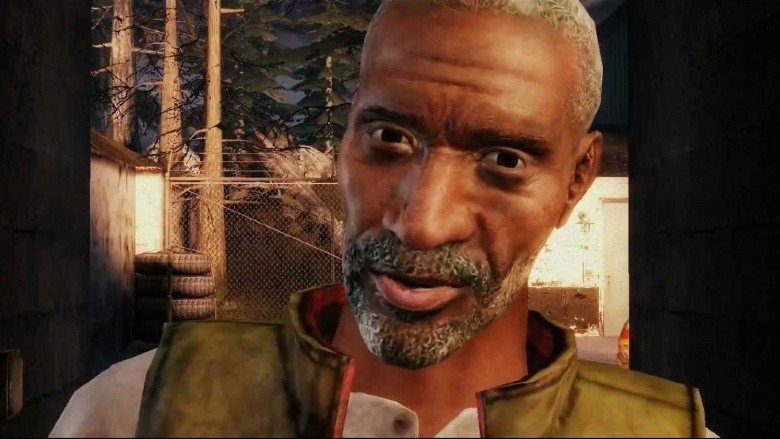
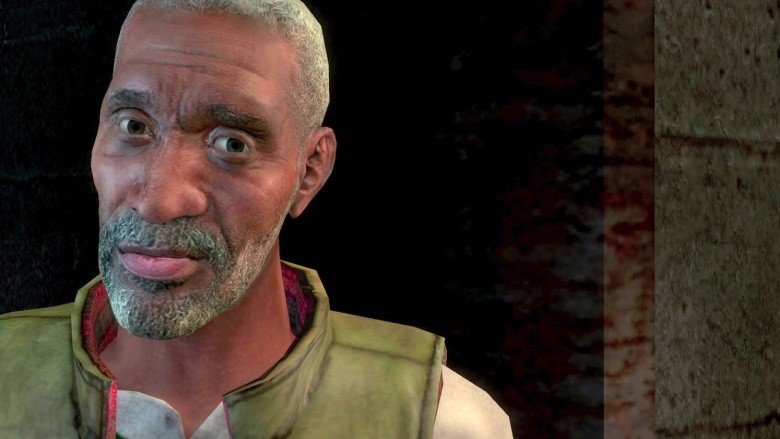
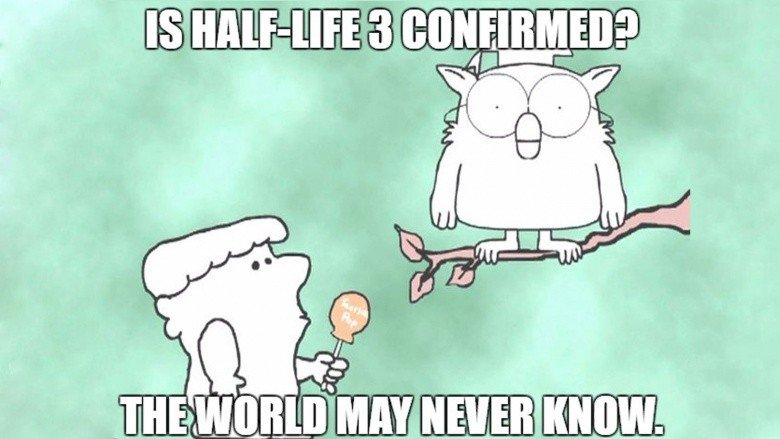
0 Response to "Why Did They Never Continue Half Life"
Postar um comentário